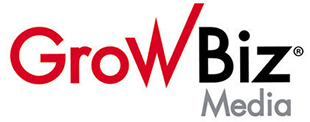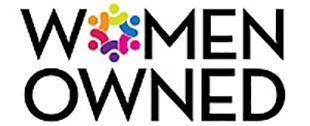Your organization will not grow if you do not grow. When I share this sentiment with business leaders, sometimes they receive it with intrigue while other times they may regard it with disdain. However, regardless of whether you own a start-up, a family-owned operation, or a boutique commercial enterprise, your ability to grow and evolve has a direct relationship with your level of business success. The question for any of us should be: how do I support my growth as a leader in service to the organizational mission?
In short, the answer lies in examining one’s relationship with oneself and the environment. And there is no better example of self-interrogation than that offered by the LGBTQ+ community. If we pay close attention, the LGBTQ+ community can offer insight on how small business leaders can facilitate greater self-examination to have greater impact on their business environment.
Self as a System
As a business owner, there are several places where we can examine our impact in our business or organization as leaders: the interpersonal level, the organizational level, and the community level. Yet, the starting point for engineering business growth lies at the individual level. If they are willing to be introspective, any leader can examine the “whole” of who they are - otherwise known as their personal system - and use Queer wisdom to create a better environment for themselves, their employees, and the overall environment.
Admittedly, it can feel a bit odd to think of ourselves as a system. To provide context, a system is a set of interconnected elements that operate in a particular way to produce a particular result. As we look in the proverbial mirror and consider our thoughts, feelings, goals, aspirations, personal histories, traumas, values, leadership brand, and workstyle, all of these elements work in a particular way to produce who we are. The sum of these different elements produces a system or a distinctive individual. In this case, that unique person is YOU the business owner, or the person who sits at the center of the enterprise or at the helm of your organization.
To have a successful business, we must be effective in creating a vision, developing a strategy, and organizing a culture that serves our stated purpose. Those aspects of a business are a direct extension of who we are as leaders. When we examine those elements critically, we can help our businesses grow exponentially and intelligently. However, when we fail to interrogate ourselves or make meaning of our thoughts and actions, we can put ourselves and our companies on the path to ruin. The commercial landscape is littered with stories of CEOs who ignored important market trends, dismissed concerns about their business culture, or relied too heavily on sycophants or “yes people” in making strategic decisions. Whether it was Home Depot, Enron, or Blockbuster, we have seen countless examples of business owners who have avoided self-examination or self-reflection to the peril of those they claim to serve.
Queer Leadership
One of the undervalued leadership values of the Queer community is its penchant to facilitate reflection and self-awareness as a pathway to greater self-actualization. For many of us in the community, the pinnacle of that journey occurs during the coming out process whereby we inform others of our LGBTQ+ identity. While “coming out” has an external component that can involve our families, friends, neighbors, and peers, it must first begin with the “self” or at the individual level as we begin to more closely examine who we are. During the “coming out” experience, we are not only distinguishing ourselves from the hetero-normative realities that exist around us, we are also asking ourselves the all-important question: “Is the person who we are in that moment serving our long-term objective of being a happy and fulfilled human being?” In other words, are we living in a way that supports our personhood, our vitality, and our day-to-day livelihood?
In the days and weeks leading to me coming out many years ago, I realized that the thoughts and ways of being that made me who I was were not going to lead me to the place I wanted to go. Although that period of reflection was arduous and tender at times, it helped me to course-correct and reorganize myself so that my behaviors matched my intentions. It laid the blueprint for me to engage in self-reflection regularly over the course of a lifetime that would help me make smarter choices, generate greater self-awareness, and increase my leadership capacity. In fact, the self-reflective and transformational growth process, while not exactly carefree or easy, has become one that I look forward to, especially when I notice incongruencies in my business or feel a discordant rhythm with my leadership. To be my best self as a leader, it is important for me to faithfully interrogate myself in order to achieve high performance and create alignment between my vision, my performance, and the needs of the organization.
Exhibiting Personal Curiosity
In considering this leadership prescription, the mistake would be to assume that you must be LGBTQ+ in order to nurture this contemplative ability within yourself. To be a more effective leader, you don’t have to be Queer…just Queer-minded. And in this instance, being Queer-minded means having the fortitude and attitude to consistently be curious about yourself to measure your leadership impact. As you look to incorporate this thread of Queer wisdom into your leadership practice, there are five sets of critical questions that can help you determine if your thoughts, actions, and behaviors are creating the type of results you want to see:
- What feedback am I getting from myself and my environment about my leadership style? What am I feeling? What am I thinking? What am I sensing in my body? How am I showing up? What behaviors am I exhibiting on a daily basis? How might that feedback inform my growth as a leader?
- Who am I choosing to be in this period of leadership? What personal values am I leveraging and which personal values am I neglecting?
- What part of myself needs to emerge to be more effective as a leader? In what ways can I clarify my vision, design strategies, or engineer a culture that helps my organization achieve its stated purpose and mission?
- What conditions are necessary for my transformational leadership qualities to emerge? How can I create those conditions in order to grow?
- What support can I solicit from other stakeholders (including my direct reports, employees, or vaunted “brain trust”) in order to help me “come out” more fully as a transformational leader?
As you think about how your organization can grow, ask yourself: how am I growing? While many leaders may focus on the technical, operational, or commercial aspects of their business, they may neglect the developmental opportunities that owning a business affords them to grow as leaders. Personal development must precede and parallel organizational development in order for your business to have sustainability. When business owners use the Queer leadership practice of self-interrogation to examine their own personal system, they can leverage self-reflection, curiosity, self-inquiry and personal awareness in service of organizational growth.
Dr. Joel A. Davis Brown is an organizational development consultant, professor, and author of the recently published book: The Souls of Queer Folk: How Understanding LGBTQ+ Can Transform Your Leadership Practice. He is based in San Francisco and New York City.
“Growth” by AdamSelwood is licensed under CC BY 2.0.



